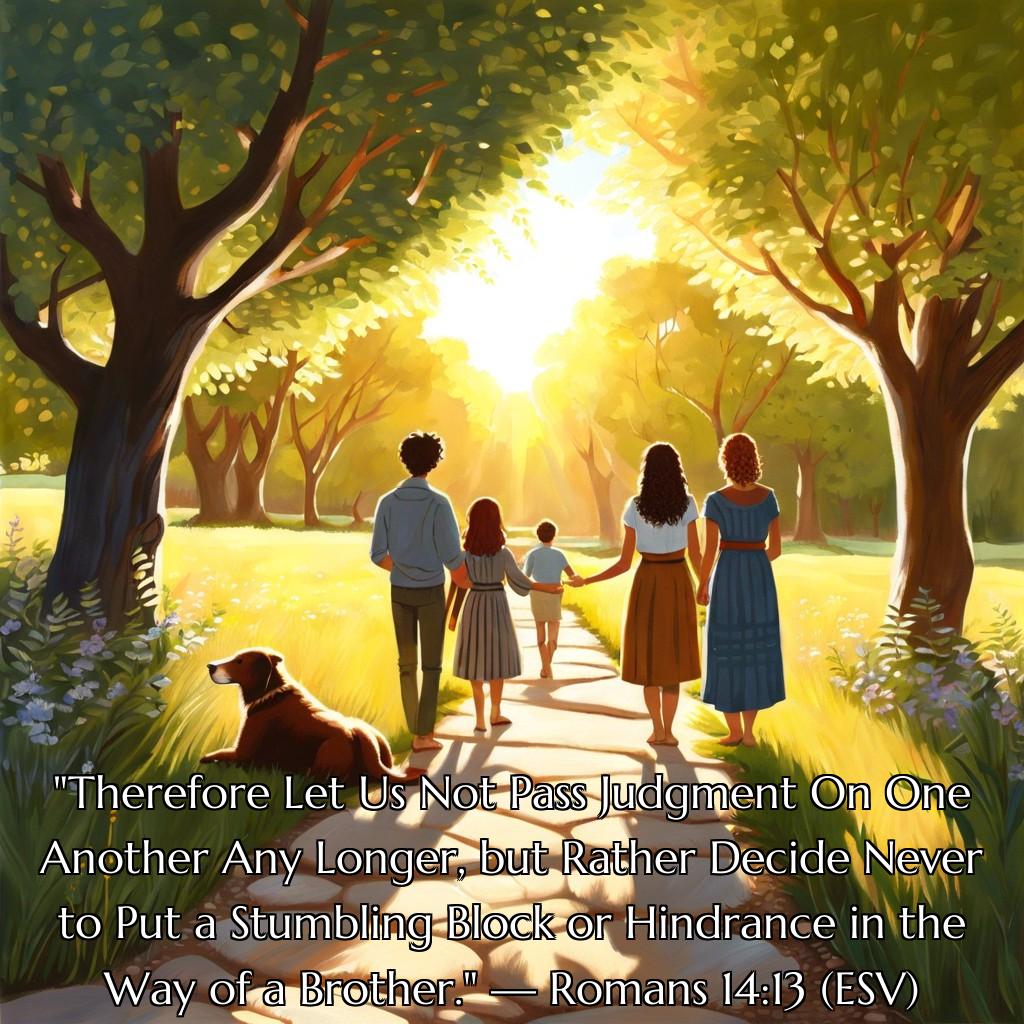In this article, you will find explanations of ten Bible verses that highlight the beauty of women as seen through God’s eyes.
The pages of the Bible offer profound insights into the true essence of beauty that extends beyond mere physical appearance. By exploring these verses, we uncover a deeper understanding of what makes a woman genuinely beautiful in the eyes of God. Each verse conveys a message that transcends time, illuminating the virtues, inner qualities, and divine design that define true beauty. Dive in to discover biblical perspectives that celebrate inner grace, wisdom, modesty, and the enduring beauty found in a life that honors God.
Proverbs 31:30: “Charm Is Deceitful, and Beauty Is Vain, but a Woman Who Fears the Lord Is to Be Praised.”

Charm can often be misleading. It might give a false impression of someone’s true character. Similarly, physical beauty, although admirable, is fleeting and temporary. These qualities, while appreciated, don’t hold lasting value.
What truly matters is the reverence and respect a woman has for the Lord. This inner dedication is what deserves recognition and praise. Unlike external appearances, a deep, sincere faith carries eternal significance.
- Points to consider:
- Spiritual depth outweighs superficial qualities.
- Genuine faith and reverence for God lead to true beauty.
- The verse encourages valuing lasting, inner qualities over temporary ones.
1 Peter 3:3-4: “Your Beauty Should Not Come From Outward Adornment, Such As Elaborate Hairstyles and the Wearing of Gold Jewelry or Fine Clothes. Rather, It Should Be That of Your Inner Self, the Unfading Beauty of a Gentle and Quiet Spirit, Which Is of Great Worth in God’s Sight.”

Peter emphasizes the importance of inner beauty over outward adornment. This means that while societal norms may place a high value on physical appearance, God’s priority is the heart.
A gentle and quiet spirit is a treasure. It’s not about suppressing personality, but nurturing qualities like kindness, humility, and peace. These traits reflect a depth of character that radiates from within.
Outer appearance fades, but inner beauty lasts forever. Peter is encouraging women to invest in the qualities that endure, as true beauty in God’s eyes is timeless and profound.
Less focus on material adornment helps shift attention to spiritual growth. By prioritizing character over cosmetics, one can cultivate virtues that resonate with divine value.
In essence, the essence of a woman’s beauty lies in her spirit and character, which hold everlasting worth.
Song of Solomon 4:7: “You Are Altogether Beautiful, My Love; There Is No Flaw in You.”
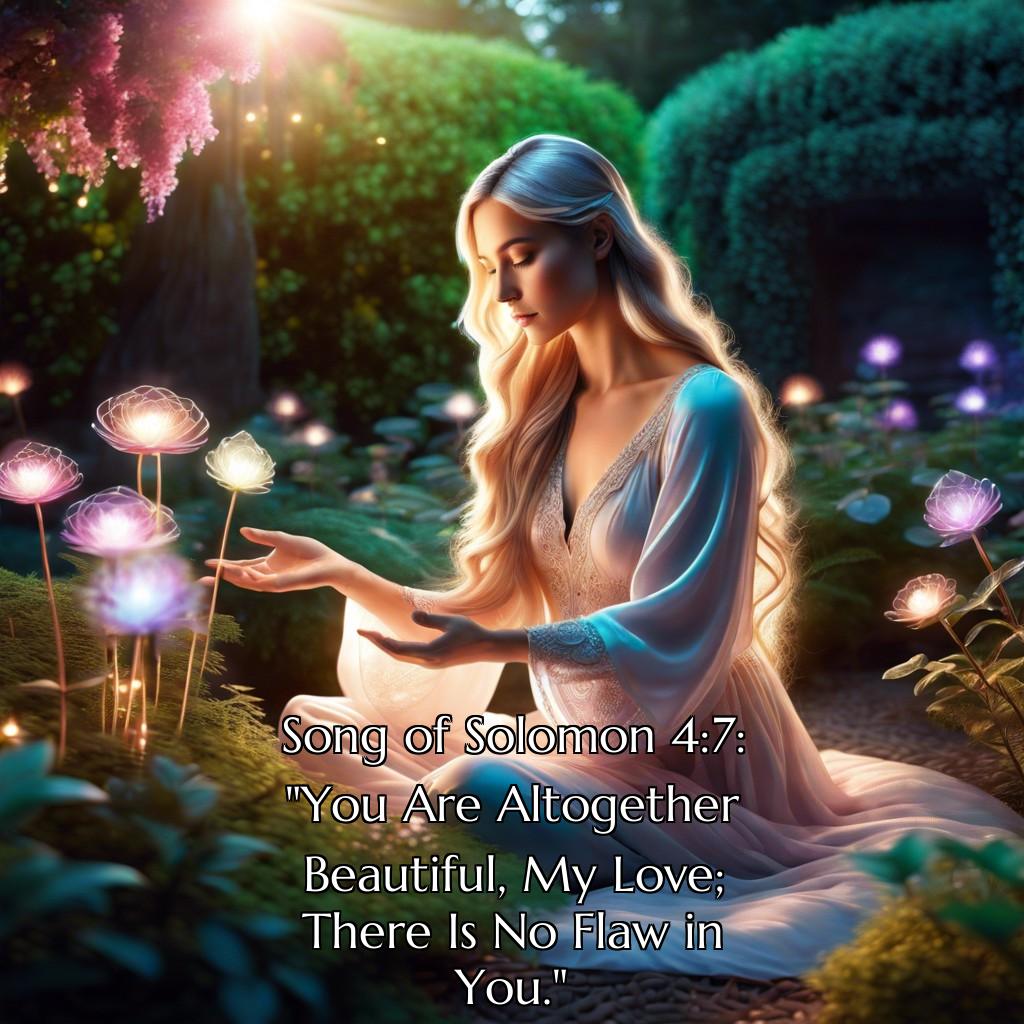
This verse celebrates the perfection of love and beauty. It is a poetic expression of admiration and devotion.
Firstly, it emphasizes the idea of being “altogether beautiful,” which suggests completeness and totality in the appreciation of one’s physical and inner qualities.
Secondly, “my love” highlights the personal and intimate relationship between the speaker and the beloved, showcasing a deep emotional connection.
Lastly, “no flaw in you” underscores the concept of seeing beyond imperfections, recognizing and valuing inner beauty and virtue. This verse conveys a message that true beauty is holistic, encompassing all aspects of a person, inside and out.
The context within the Song of Solomon speaks to the covenantal love, reflecting an idealistic, divine perspective of love and admiration.
Proverbs 11:22: “Like a Gold Ring in a Pig’s Snout Is a Beautiful Woman Who Shows No Discretion.”
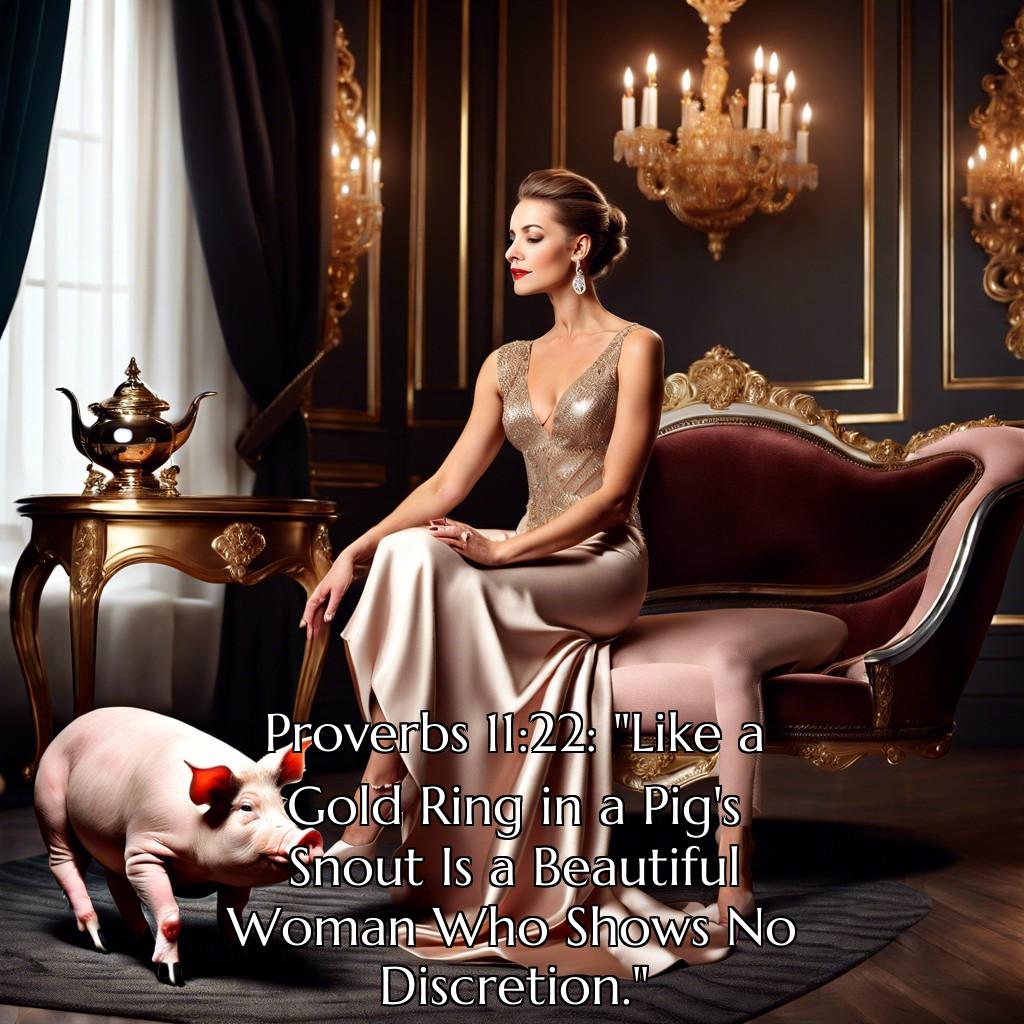
Proverbs 11:22 uses sharp imagery to drive home an important point about character. The metaphor of a gold ring in a pig’s snout emphasizes the incongruity between outer beauty and inner lack of discretion.
- Emphasis on Character: This verse highlights that while physical beauty can be admired, it is greatly tarnished when not accompanied by wisdom and good judgment.
- Incongruence: The beauty of a woman without discretion is as misplaced as a valuable gold ring on a pig, which fails to appreciate or uphold its value.
- Value of Wisdom: The verse suggests that true beauty encompasses not just outward appearance but also the wise conduct and decisions that reflect inner grace.
The imagery is striking, urging women to cultivate inner beauty through discretion and wisdom, aligning their outer allure with commendable character traits.
1 Timothy 2:9-10: “I Also Want the Women to Dress Modestly, With Decency and Propriety, Adorning Themselves, Not With Elaborate Hairstyles or Gold or Pearls or Expensive Clothes, but With Good Deeds, Appropriate for Women Who Profess to Worship God.”
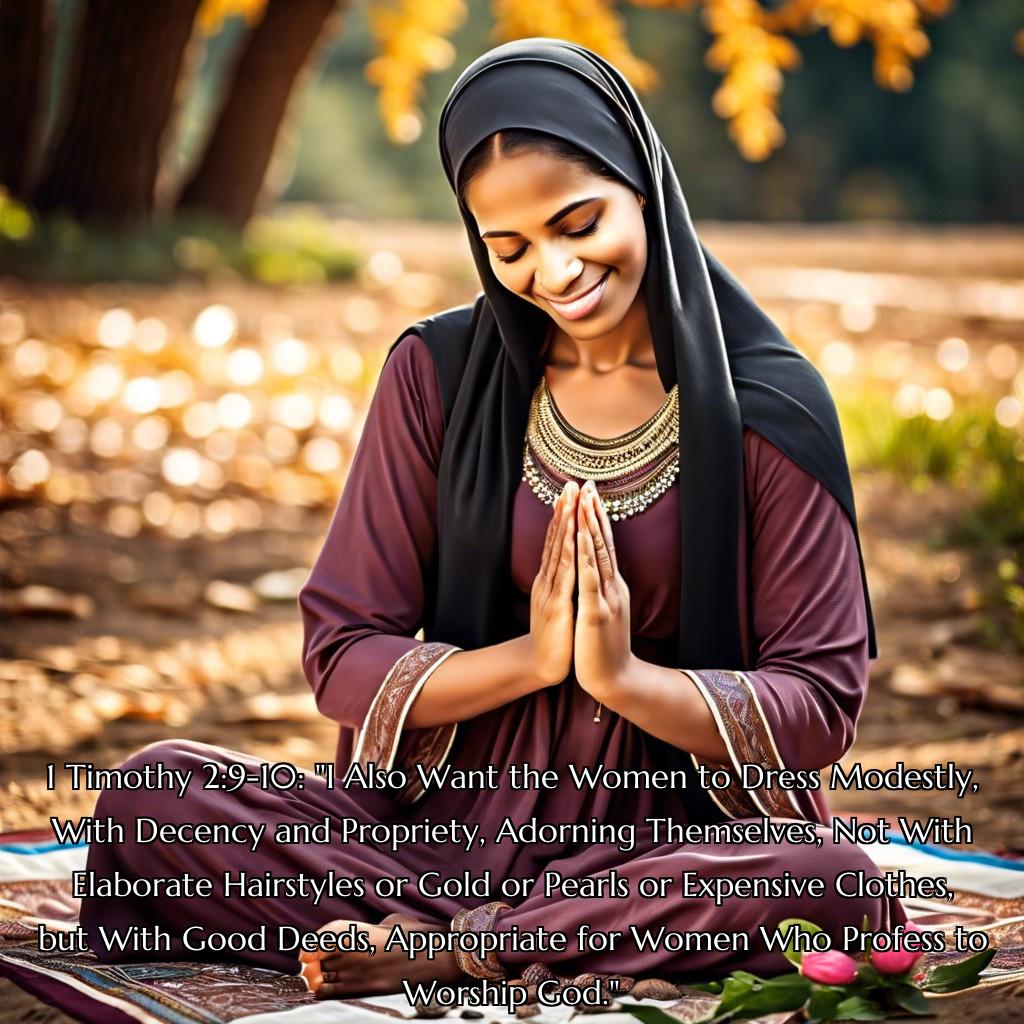
This passage emphasizes inner beauty over outward adornment. It suggests that modesty, decency, and propriety are key aspects of a woman’s appearance.
Instead of focusing on elaborate hairstyles or expensive outfits, women should be known for their good deeds. This aligns with the values of humility and service, which are central to the Christian faith.
The underlying message is clear: true beauty in the eyes of God comes from one’s character and actions rather than physical appearance. This verse encourages women to reflect their faith through their behavior and modest presentation. It’s a reminder that what’s inside matters more than what’s outside.
Song of Solomon 4:1: “How Beautiful You Are, My Darling! Oh, How Beautiful! Your Eyes Behind Your Veil Are Doves.”
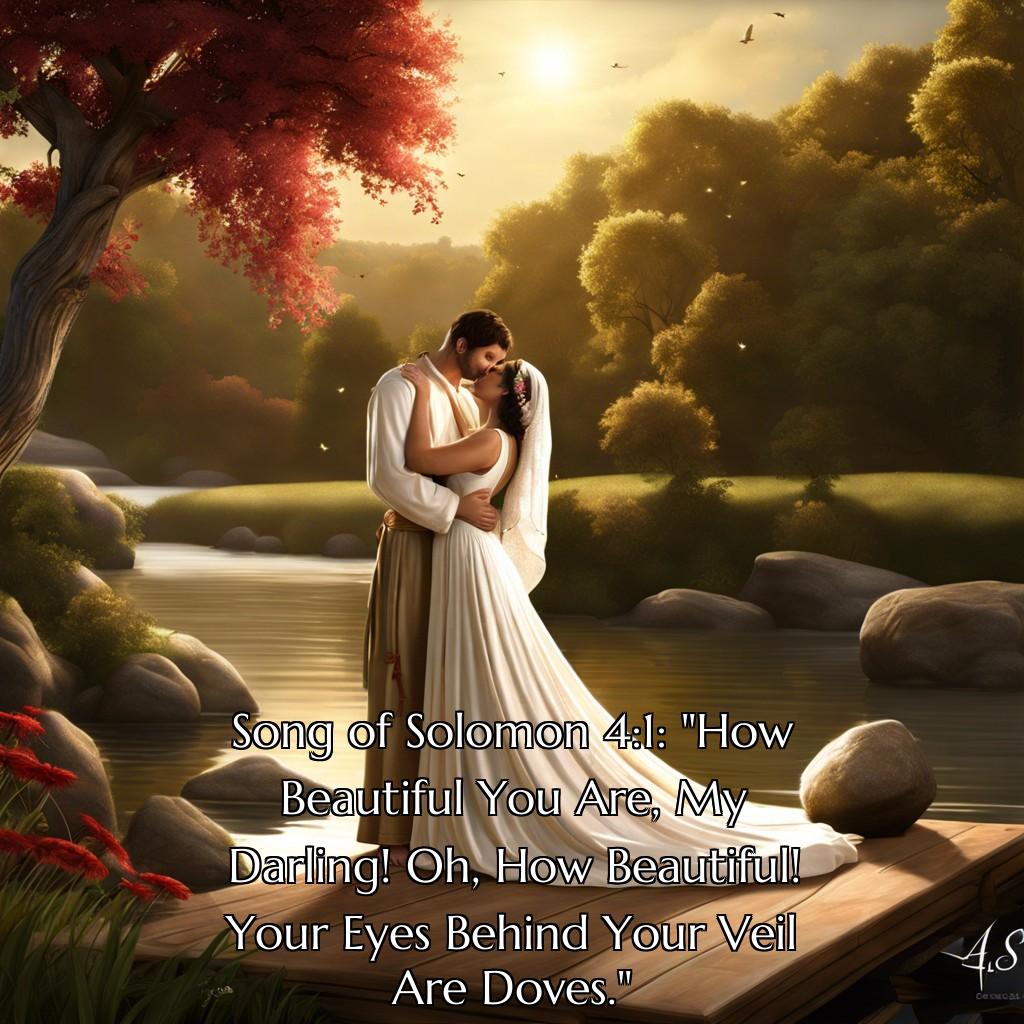
This verse celebrates the physical beauty of a woman, but it also carries deeper spiritual meanings. Firstly, it highlights the significance of admiration and affection in relationships. The poetic language of the Song of Solomon emphasizes the importance of recognizing and verbalizing beauty in a loved one. It’s not just about physical appearance; it’s about conveying love and appreciation in a heartfelt manner.
The eyes described as “doves” can be seen as a metaphor for innocence and purity. Doves are often symbols of peace and purity in biblical texts. Therefore, this compliments a woman’s gentle and peaceful nature, suggesting that true beauty lies in these inner qualities.
Additionally, veils in biblical times often signified modesty and respect. The beauty behind the veil indicates that modesty enhances a woman’s allure, pointing to the value of inner beauty and character over mere outward appearance.
This verse encourages readers to see beyond the physical, appreciating the whole person, and recognizing that beauty is multifaceted and deeply connected to the soul and spirit.
Isaiah 52:7: “How Beautiful On the Mountains Are the Feet of Those Who Bring Good News, Who Proclaim Peace, Who Bring Good Tidings, Who Proclaim Salvation, Who Say to Zion, ‘Your God Reigns!'”
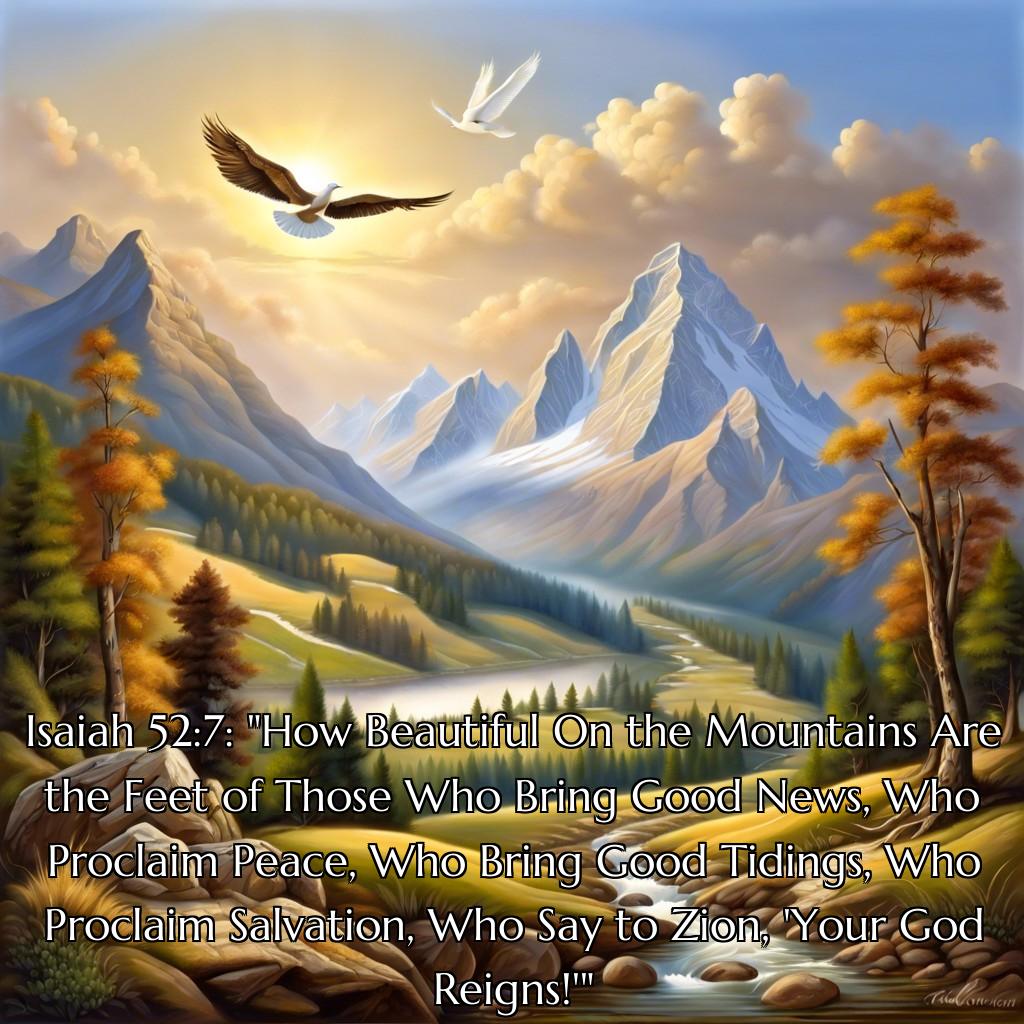
This verse highlights an unconventional aspect of beauty, emphasizing the significance of actions and their impact. Here, beauty is attributed to those who bring good news, peace, and salvation—traits that go beyond physical appearance.
First, consider the setting: mountains. The feet of messengers traversing rugged terrain symbolize dedication and determination.
Second, the message itself is vital. Bringing good news, peace, and declaring God’s reign uplifts and transforms lives, reflecting inner beauty and the soul’s richness.
Third, this beauty is grounded in purpose. It’s about spreading hope and salvation, illustrating that true beauty often lies in our mission and how we serve others. This richer perspective aligns closely with many other biblical teachings that value inner qualities over outward appearances.
Psalm 139:14: “I Praise You Because I Am Fearfully and Wonderfully Made; Your Works Are Wonderful, I Know That Full Well.”

This verse highlights several profound truths about human creation and divine artistry.
First, it reminds us that each individual is “fearfully” made, emphasizing awe and reverence in the creation process. This speaks to God’s intentionality and meticulous care in crafting every aspect of our being.
Second, the term “wonderfully made” underlines the uniqueness and special nature of every person. There’s a distinctiveness about everyone that speaks to a personal touch from the Creator.
The psalmist also acknowledges the inherent value in God’s works, calling them “wonderful.” This is a celebration of God’s mastery and the inherent beauty imbued in His creations.
Lastly, the affirmation “I know that full well” suggests a deep, personal realization and acceptance of these truths. It’s a call to embrace and recognize one’s inherent worth and beauty as a creation of God.
Ecclesiastes 3:11: “He Has Made Everything Beautiful in Its Time. He Has Also Set Eternity in the Human Heart; Yet No One Can Fathom What God Has Done From Beginning to End.”

This verse reveals the timeless nature of God’s creation and His perfect plan. Everything created by God is inherently beautiful and reveals His divine timing. Things may not always appear beautiful immediately, but in their appointed time, their true beauty emerges.
It also delves into the mystery of eternity set in the human heart. This speaks of a deep, intrinsic awareness of something greater than ourselves – the divine mysteries we long to understand.
We may struggle to grasp God’s entire plan from beginning to end, acknowledging our human limitations. This humbling realization draws us closer to relying on God’s wisdom and perspective. Embracing this can bring peace as we trust in the unfolding beauty of His design.


